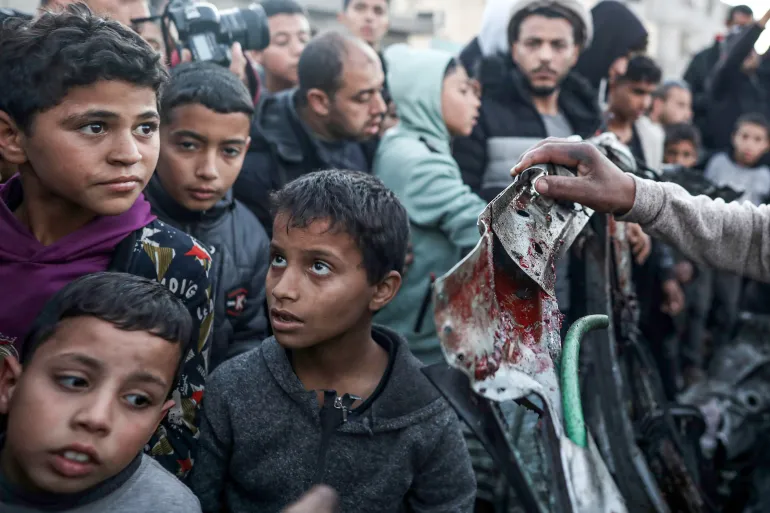
UN chief says ground invasion of city would widen the ‘humanitarian nightmare with untold regional consequences’.
Panic is growing in Rafah over an imminent ground invasion after Israel’s prime minister ordered his military to prepare to enter the city in the southern Gaza Strip that is sheltering 1.2 million people with nowhere else to go as he rejected Hamas’s truce plan and rebuffed US efforts to reach a deal.
A new round of talks aimed at securing a truce with Hamas were set to open on Thursday in Egypt after Prime Minister Benjamin Netanyahu said Israel will not end the war and will push on until “total victory” over the Palestinian group.
Visiting United States Secretary of State Antony Blinken insisted on Wednesday that he still saw “space for agreement to be reached” and was meeting on Thursday in Tel Aviv with Israel’s war cabinet members Benny Gantz and Gadi Eisenkot to discuss the release of captives being held in Gaza.
“We are on the way to an absolute victory,” Netanyahu said on Wednesday, adding that the operation would last months, not years. “There is no other solution.”
Israeli air strikes overnight on Rafah – which Israel had once declared a safe zone for displaced Palestinians – killed 14 people, including five children.
Al Jazeera’s Hani Mahmoud, reporting from Rafah, said: “What people are experiencing in the southern part of the Gaza Strip is a surge in attacks from air, land and sea.”
Safia Marouf, a displaced Palestinian who sought refuge in Rafah with her family after being uprooted from their home farther north, said she is afraid of what’s to come. “The children are scared all the time, and if we want to leave Rafah, we don’t know where to go. What will be our destiny and that of our children?”
United Nations Secretary-General Antonio Guterres said a ground invasion of Rafah would “exponentially increase what is already a humanitarian nightmare with untold regional consequences”
‘Critical phase’
Al Jazeera’s Hashem Ahelbarra said the meeting in Egypt indicated that “we’re moving towards a critical phase of any potential agreement between Israel and Hamas” after senior Hamas leader Osama Hamdan said a delegation was going to Cairo.
“I think we have reached a point where we’re really talking about operational aspects of the agreement, and what is happening behind closed doors is a real, genuine push towards that,” Ahelbarra said.
The Muslim fasting month of Ramadan in March puts “political pressure on leaders in this part of the world”, he said, adding that if Israeli attacks continue then “I wouldn’t see a chance of any deal in the near future.”
Hamas had laid out a three-phase plan to unfold over four and a half months that would see the release of all captives in exchange for hundreds of Palestinians imprisoned by Israel, including senior fighters, and an end to the war.
“While there are some clear non-starters in Hamas’s response, we do think it creates space for agreement to be reached, and we will work at that relentlessly,” Blinken told reporters after meeting Netanyahu to discuss the Hamas counterproposal to a truce plan drawn up by US and Israeli spy chiefs and delivered to the Palestinian group last week by Qatari and Egyptian mediators.
Reporting from occupied East Jerusalem, Al Jazeera’s Rory Challands said Blinken “came to get a deal and he didn’t get it”.
“He’s still going to try to bridge the huge gap between Israel and Hamas. He might be right – there might be a chance. But at the moment, he’s going back to Washington, DC, empty-handed,” Challands said on Thursday.

